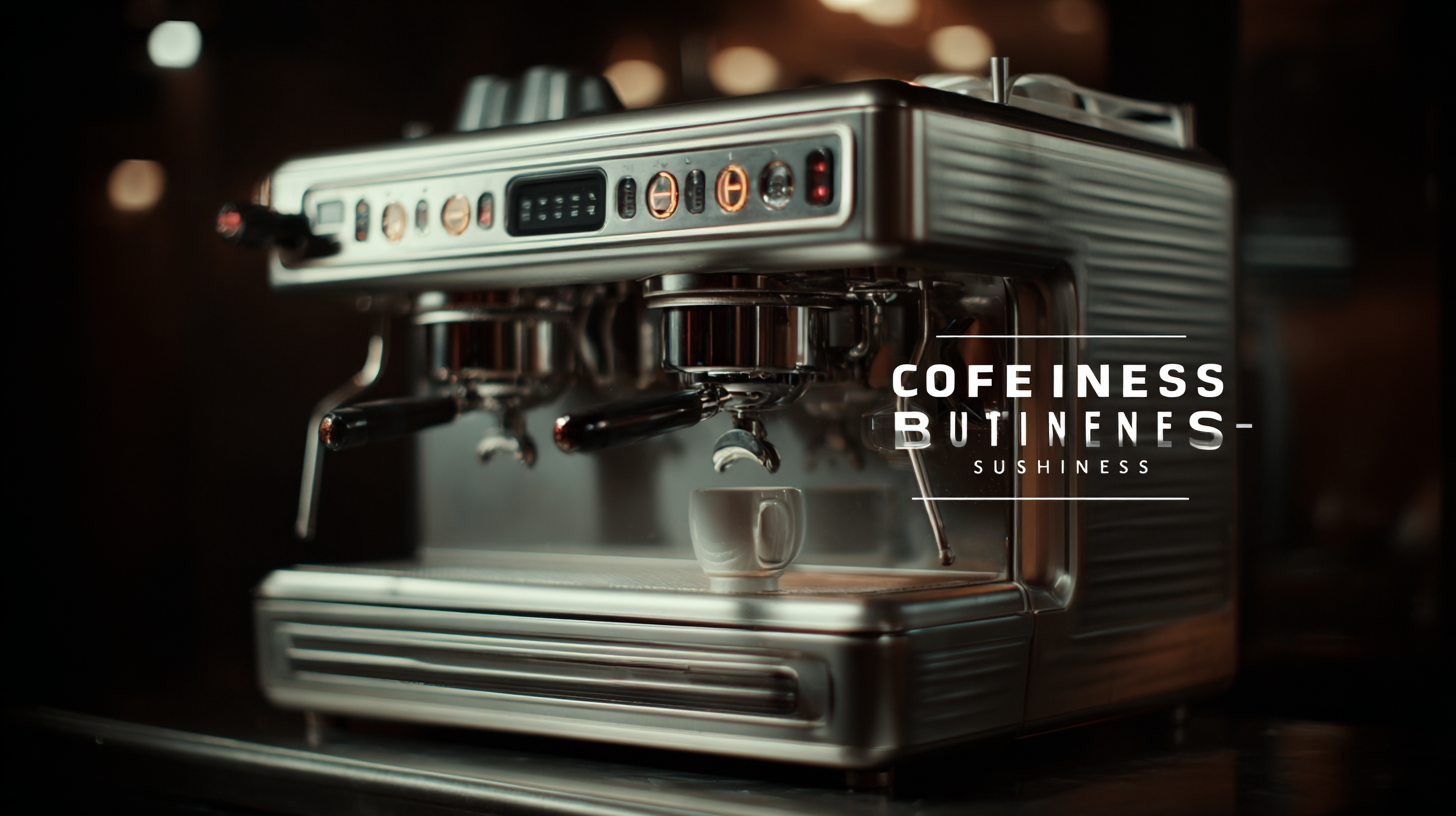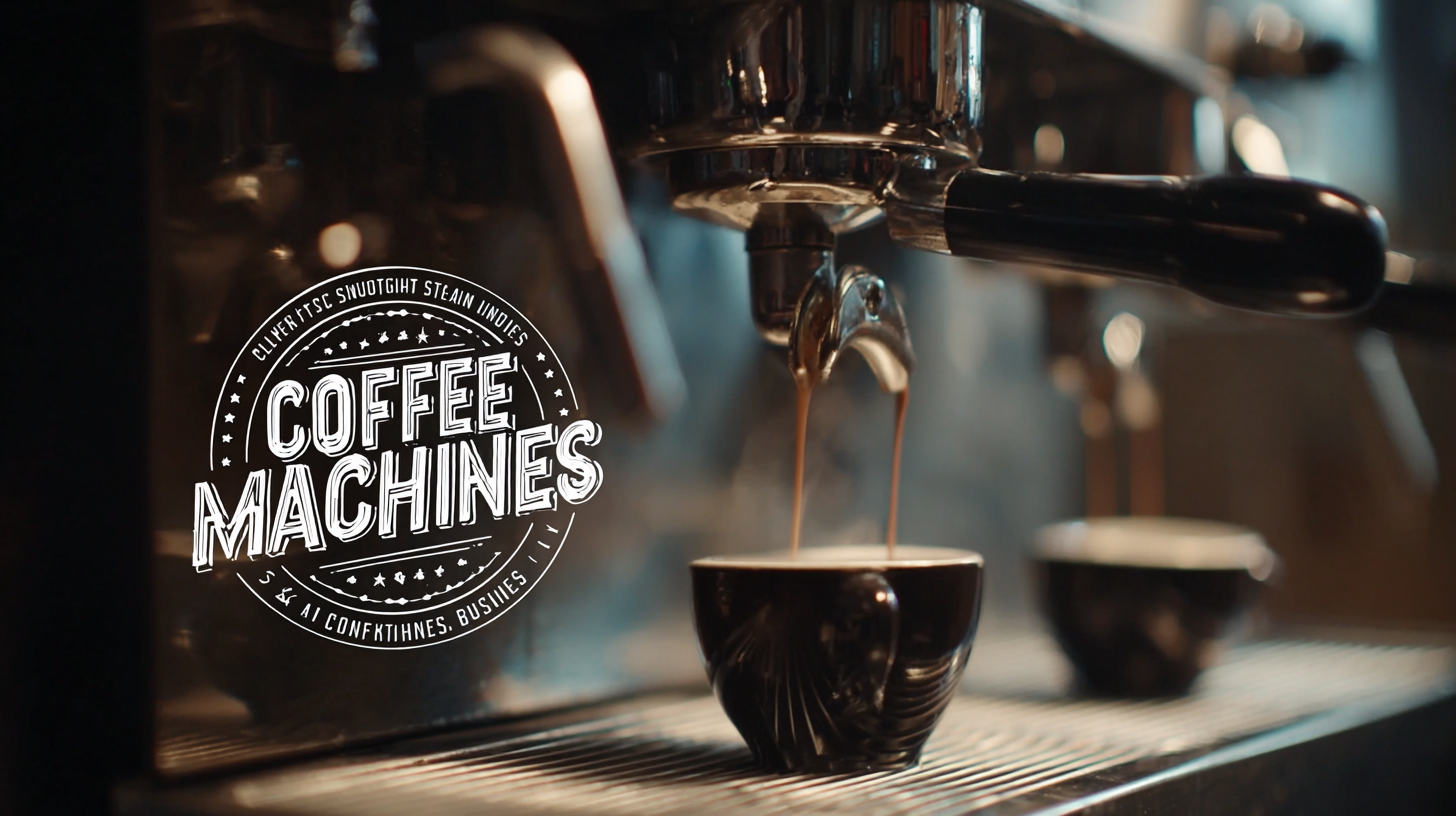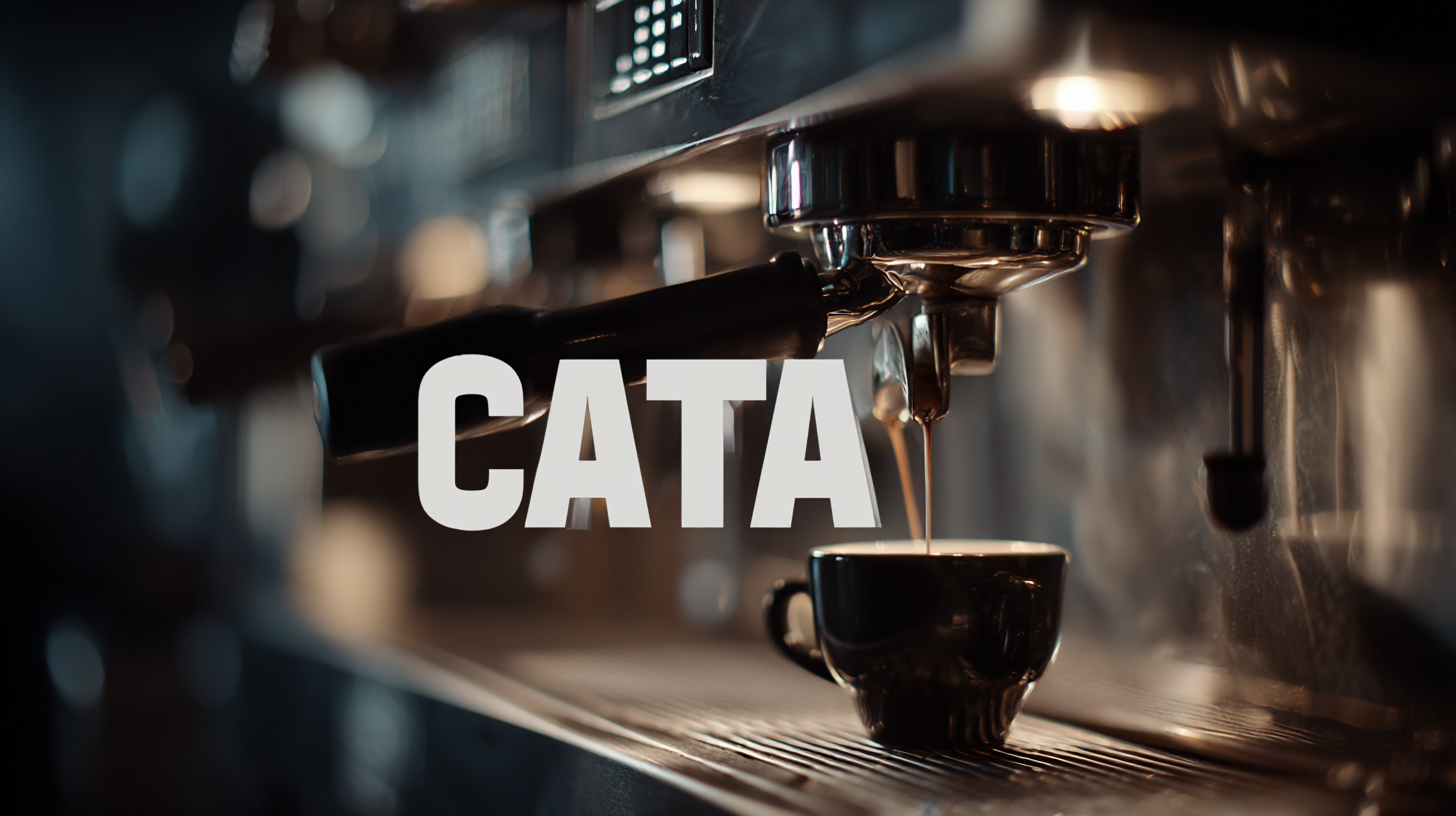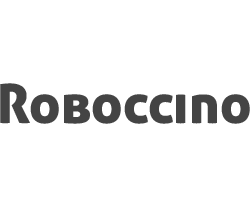Elevating Industry Standards with the Best Coffee Machines for Business Use
As the coffee industry continues to evolve, the demand for high-quality coffee machines for business has never been greater. Recent market research indicates that the global coffee machine market is projected to grow significantly, reaching an estimated value of over $10 billion by 2025, driven by the increasing popularity of specialized coffee beverages and the growing café culture.

Businesses that invest in top-tier coffee machinery not only enhance the quality of their offerings but also elevate customer experiences, leading to increased loyalty and sales. With advancements in technology, today's coffee machines for business are designed to improve efficiency, sustainability, and user-friendliness, making it essential for companies to stay updated on industry trends to remain competitive.
This ultimate guide will explore the latest technological trends of 2025 and highlight the best coffee machines tailored for business use, equipping you with the knowledge needed to make informed purchasing decisions.
Best Coffee Machines for Business Use: Key Technical Specifications to Consider
When considering the best coffee machines for business use, understanding key technical specifications is crucial for making an informed decision. One of the primary features to examine is the brewing capacity. High-traffic environments require machines that can brew multiple cups in a short amount of time, ideally with larger water reservoirs and bean hoppers. Additionally, consider the type of brewing system, whether it’s a drip coffee maker, espresso machine, or a single-serve option. Each type serves different needs, from quick service to specialty coffee creations.
Another important specification is the level of automation and programmability. Machines with advanced features allow for precise control over brewing temperature, grind size, and extraction time, resulting in a consistently high-quality cup of coffee. Features like built-in grinders and milk frothers can enhance versatility, catering to a variety of customer preferences. Durability and ease of maintenance also play a significant role—investing in machines made from high-quality materials ensures longevity and reduces downtime from repairs. Selecting a coffee machine that meets these technical specifications can elevate the coffee experience in any business setting.

Comparing Brewing Techniques: Drip, Espresso, and Pour Over for Commercial Settings
In the competitive world of coffee business, selecting the right brewing technique can significantly influence customer satisfaction and operational efficiency. Notably, drip coffee brewing, which accounts for over 40% of coffee consumption in the U.S., is praised for its simplicity and ability to produce large volumes quickly. According to a report by the Specialty Coffee Association, operators favor drip machines for their consistency and ease of use, making them ideal for cafes and restaurants looking to serve high-quality coffee without extensive barista training.
On the other hand, espresso machines provide an entirely different experience, with the global espresso market projected to grow at a CAGR of 7.6% from 2023 to 2030. The rich, creamy texture and concentrated flavors of espresso can create a luxurious coffee experience, appealing to customers seeking premium beverages. However, maintaining espresso machines requires a skilled operator and can lead to longer service times during peak hours.
Lastly, the pour-over method, while gaining traction for its artisanal appeal, still represents a smaller segment of the market. Research highlights that about 25% of specialty coffee drinkers prefer pour-over, emphasizing the importance of the brewing process. This technique allows baristas to control every aspect of brewing, from water temperature to pour rate, resulting in unique flavor profiles that can set a business apart. As businesses weigh these brewing techniques, the decision ultimately shapes not just their menu, but also their identity in the coffee landscape.
Comparing Brewing Techniques for Business Use
Evaluating Energy Efficiency in Coffee Machines: Impact on Business Costs
Energy efficiency in coffee machines is a critical factor that businesses must consider, especially in light of rising operational costs. With the global market for coffee machines projected to grow significantly, investing in energy-efficient models can yield considerable savings over time. Businesses can not only lower their electricity bills but also reduce their carbon footprint, aligning with the growing demand for sustainable practices in the coffee industry.
Innovative solutions are emerging, as manufacturers explore advanced technologies to create more efficient machines. For instance, energy-saving coffee machines combine traditional design with modern manufacturing techniques. By utilizing real-time data and automation, coffee businesses can enhance their operations while minimizing energy waste. As the industry shifts towards greener alternatives, understanding the energy consumption of coffee machines becomes essential for maintaining competitive pricing and ensuring long-term sustainability.
Additionally, some businesses are even exploring the feasibility of carbon-neutral espresso machines, which could further revolutionize the industry. By integrating carbon offset initiatives, coffee companies can contribute positively to the environment while attracting eco-conscious consumers. The future of coffee machines lies not only in their brewing capabilities but also in their potential to transform how we think about energy use and sustainability in the cafe environment.
Essential Features of High-Performance Commercial Coffee Machines
When investing in commercial coffee machines, understanding the essential features can significantly elevate the quality of coffee served and streamline operations. High-performance machines should prioritize brewing temperature control, ensuring that the coffee extracts at the ideal temperature for maximum flavor profile. Consistency is key; machines that offer programmable settings can reproduce the same exceptional taste with every brew, catering to the preferences of a diverse clientele.
Another critical feature to consider is the machine's capacity and speed. For businesses that experience high foot traffic, a machine that can brew multiple cups simultaneously without compromising quality is a must. Additionally, ease of use and maintenance cannot be overlooked. Machines designed with user-friendly interfaces not only simplify training for staff but also encourage efficiency during peak hours.
Moreover, easy-to-clean components prolong the lifespan of the machine and maintain hygiene standards, which is vital for any food service establishment.
Maintenance Tips and Best Practices for Prolonging Coffee Machine Lifespan in Businesses
When investing in a coffee machine for your business, ensuring its longevity is crucial to maintaining both efficiency and quality. Regular maintenance is the backbone of a well-functioning coffee machine. Begin with a daily routine of cleaning the machine’s exterior and brewing components. Wipe down surfaces to prevent the buildup of coffee oils and stains, while also running a water cycle to clear out any residue from previous brews.
In addition to daily maintenance, weekly and monthly tasks should not be overlooked. Descaling the machine every month is essential, especially in areas with hard water. This process helps to remove calcium deposits that can influence the taste of the coffee and hinder the machine's performance. Additionally, inspect and replace water filters regularly to ensure optimal water quality, preventing any impurities from affecting your brew. By following these maintenance tips and best practices, you can significantly extend the lifespan of your coffee equipment, ensuring that your business consistently serves high-quality coffee.


